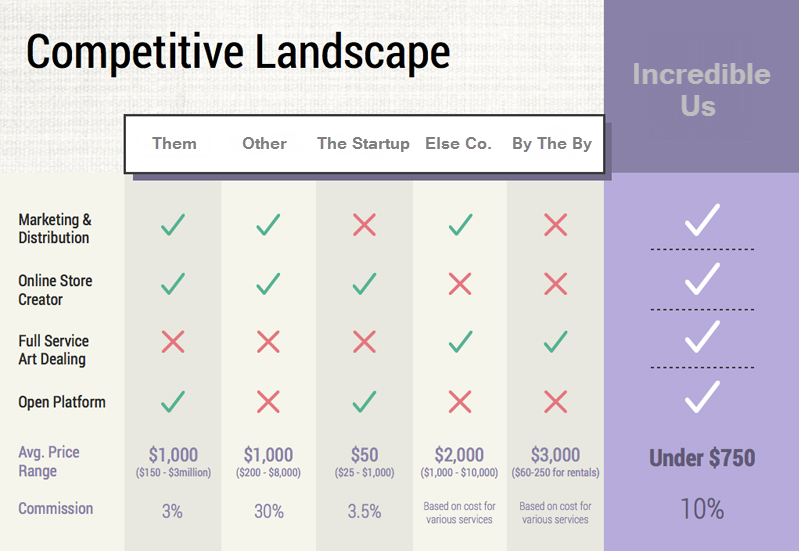There is a trick to entrepreneurship, to starting a venture, that no one really ever talks about. Not sure why they don’t talk about it… perhaps because they don’t understand how to do it… perhaps because everyone is selling something… perhaps because they’ve hired help and it sucked… regardless, I’m going to let you in a little secret about building a successful startup; the trick is…
Don’t fail.
- Startup Failure Rate And 80+ Other Startling Startup Stats
- Why 90% of Startups Fail, and What to Do About It
- 90% Of Startups Fail: Here’s What You Need To Know About The 10%
- Startup Failure Rate: Ultimate Report + Infographic [2020]
- The Venture Capital Secret – 75% of Startups Fail – Scale Finance
- 90% of Startups Fail: Here Are 4 Expert Tips to Improve Your Odds | Startup Grind
There are so many articles about the fact that 90% of startups fail (I bolded that in case you haven’t heard it enough yet and still didn’t know), that it’s personally aggravating as I get grayer and become that grumpy get-off-my-lawn old man, that there is still all this encouragement to be an entrepreneur and almost no one is writing about, talking about, nor teaching just how to NOT FAIL.
There are even websites dedicated to failed startups!
So here’s the bottom line reality about being an entrepreneur or founder of a startup.
You are going to fail.
Seriously, there is no more sure bet in the world. Think about it… on what else can you possibly actually gamble where you know the likelihood of winning is only 10%??
Play craps in Vegas and you have a better chance of making money.
So why do we do it???
- The payout is better; or rather, can be.
- Personal passion is a seriously undervalued trait that matters; we do it because we *want to*
- Desire to fix or better something; another underappreciated quality of some founders/entrepreneurs – how much is this solution they’re trying to deliver simply an outcome of who they are, personally?
- Preference for how they want to live their life and work. I, for example, just can’t imagine working for an enterprise company.
But still, the key point? YOU ARE GOING TO FAIL
The trick to entrepreneurship is not focusing on how to be successful; because that is literally playing the LONG odds of being one of the 10%. Think about it more, in how many things about yourself are you the top 10% of the world? Seriously, no one sane does something because they’re sure they’re going to be in the 10%
The trick to entrepreneurship is focusing on what prevents failing from happening.
Thus, a great question: Why is competitive analysis important to an entrepreneur?
Take a look at this.Paul Graham’s assessment of the mistakes that kill startups
#s – 2, 3, 4, 5, 7, 8, 9, 10, 11, 12, 13, 14, and 15 are all MARKET related issues.
Seriously, read it closely. So… what would any sane entrepreneur do? Knowing you have a 90% chance of failing, why would you make any investment in doing anything other than avoiding these 18 things?!
Here’s the study Carnegie Mellon’s Chandni Motwani did for Chubby Brain
Reasons 1, 2, 4… the top reasons: market related.
And one could argue that since 1, 2, and 4 are Market related, #3 (not the right team) is in fact because that team didn’t prioritize, understand, or include doing the Marketing to NOT screw up customers, market need, or what team you need.
For crying out loud, #4 literally just says crappy marketing.
Go down the list though, 1, 2, [3], 4, 5, 6, 7, 8, 9, 10, 11, 16, 17, and 20. Wow.
Let’s do it again, here’s CB Insights with Statista
#1 No Market Need.
1, 2, 4, 5, 6, 7, 8 (actually says “poor marketing” too), 9, 10, 13, 15, 20
Seeing the pattern?
Seeing why I’m increasingly grumpy old man aggravated?
The reasons startups fail is VERY well known. And yet, everyone is fixated on “do this,” “do that,” MVP, hire me, get validation, raise money.
What is a Competitive Analysis?
A competitive analysis is one of the primary ways that we study the market. That we do what avoids 1, 2, 4, 5, 6, 7, 8, 9, 10, 13, 15, 20
A competitive analysis is to determine the strengths and weaknesses of the competitors within your market, strategies that will provide you with a distinct advantage, the barriers that can be developed in order to prevent competition from entering your market, and any weaknesses that can be exploited.
The worst thing you could be is one of those founders or entrepreneurs who says, “we don’t have any competitors.”
Let me add one more getting grumpier old man statement: YOU HAVE COMPETITORS. No one in the history of my family tree traced back to the 1700s in Ireland has ever been able to say they don’t have competitors.
What causes you to fail? Aside from the many many things listed above? Simply: competitors who do what you are doing cheaper, better, or faster.
So why on earth would you start ANYTHING or invest in building ANYTHING if you haven’t yet determined that you won’t fail because of them?
What you’re usually looking into is 7 things:
- What they offer and how (the product or service)
- Where they provide it and why there (distribution)
- How the monetize it and the model for that (pricing)
- What kind of capital and partners are they working with (resources)
- Who is on the team (people)
- How do they promote it and why that way (promotion)
- What sort of advertising are they doing (advertising)
Your goal?
To… not run out of cash… to not have the wrong team … to not have poor marketing or a poor product … not choose the wrong location or platform.
To NOT fail by NOT doing what they’re doing well and by finding the competitive advantage you could develop by being better at that than they are.
I want to invite you to join me in such discussions live and together.
Join me online here

